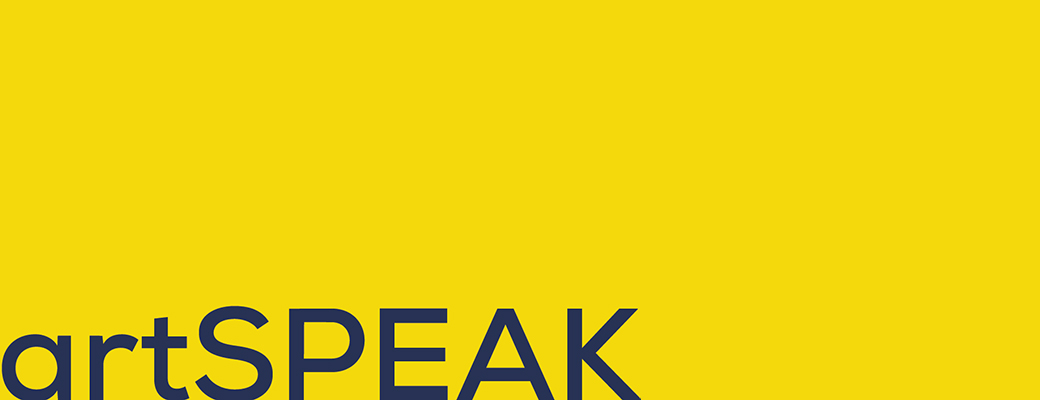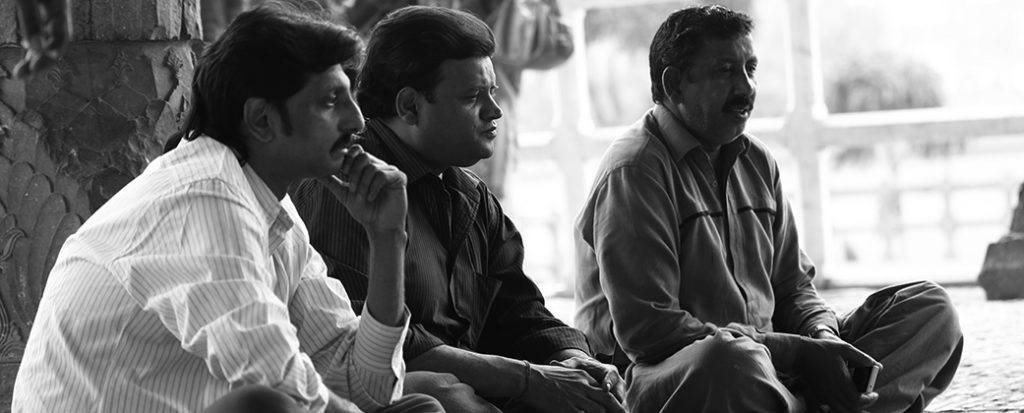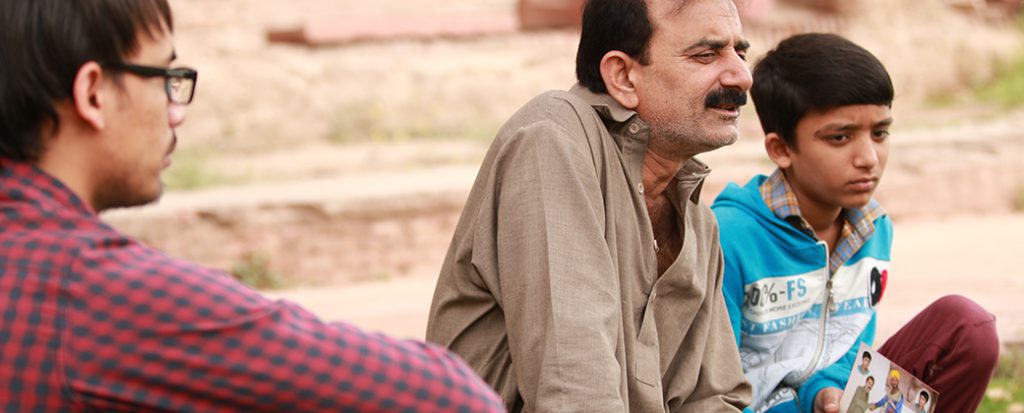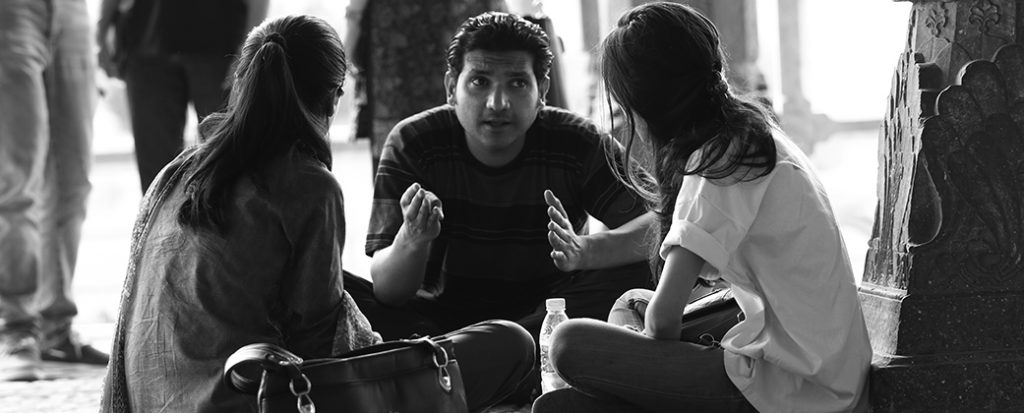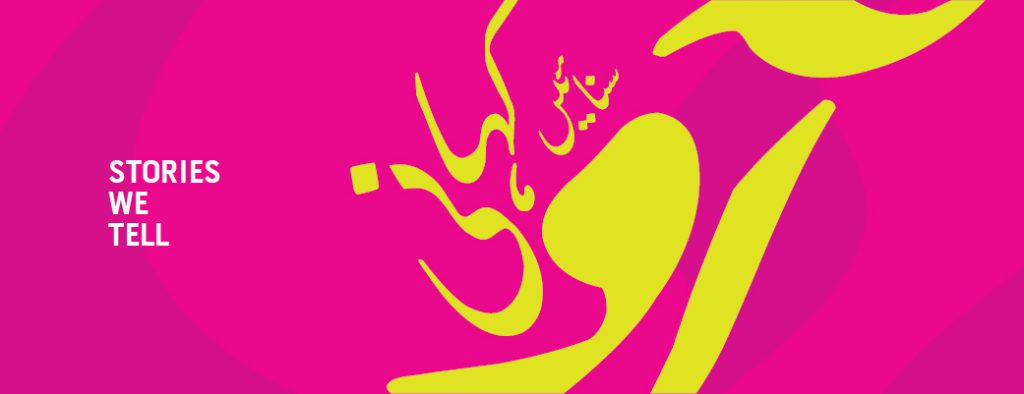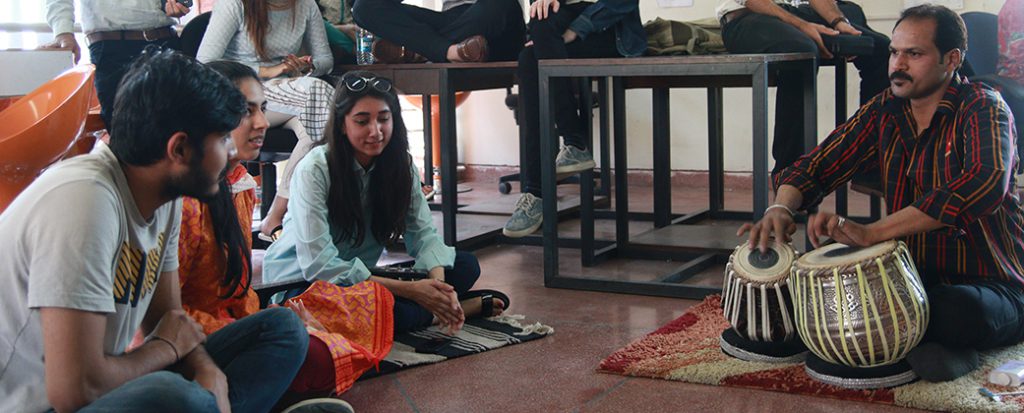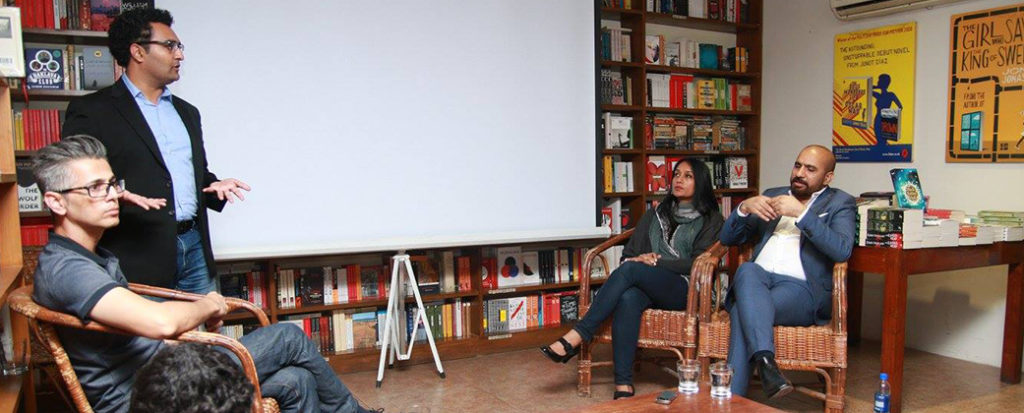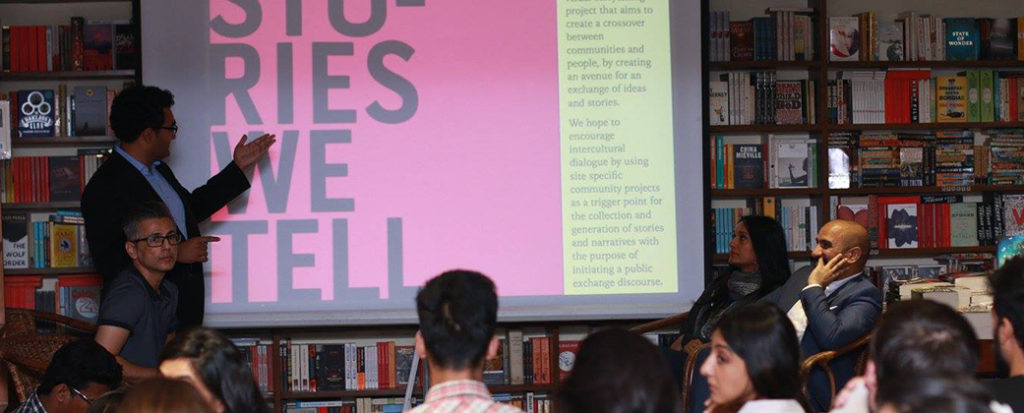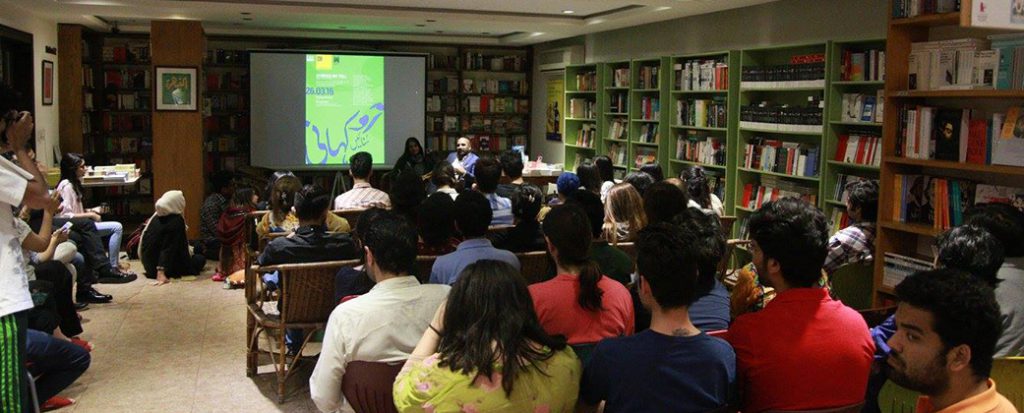Project | Stories We Tell – آو سنائیں کہانی
Audio-Visual Storytelling ProjectThe Lahore Biennale Foundation (LBF) and the School of Visual Art and Design (SVAD) at Beaconhouse National University (BNU) have partnered to create Stories We Tell (آو سنائیں کہانی), an audio-visual storytelling project made possible with the support of the Centre for Culture and Development (CKU). The project aims to bridge gaps between communities and individuals by cultivating an exchange of ideas and experiences. An intercultural dialogue is being initiated and fostered using site-specific community projects that serve as a point for the generation and collection of multiple narratives. It would further encourage the citizenry of Lahore to both reflect upon and share their personal experiences, and also expand public discourse.
Aao Sunayein Kahani – آو سنائیں کہانی
The art of conversation and storytelling has played an important role in suturing together the cultural fabric of South Asia. This was how, for the longest time, histories were transferred between generations; survival narratives were created, exchanged and relayed; and instructional anecdotes to sustain everyday life were passed on. The act of listening and hearing created collective wisdom and a sense of commonality across social divides, thereby sustaining intercultural and interclass dialogue.
With public spaces becoming more and more stratified and co-opted by specific classes, the interaction between classes has become minimal, most of it happening in a space where the power and class dynamics dictate how stories will be shared, as well as who will tell and who will listen to them. Aao Sunayein Kahani aims to bring conversational storytelling and sharing back to public spaces in the hopes of making the act of storytelling and experience-sharing a democratic one.
The storytelling and sharing process will last for seven months (March – September) with booths being placed around the city for a week each month, with the purpose of recording and disseminating stories. A defining monthly theme that encapsulates a particular aspect of Lahore’s quintessential everyday life dictates not only the locations at which our storytelling booths are placed, but also the narrative theme of the stories being played and recorded.
Collaboration with the Mirasi Community
As part of the Stories We Tell (آو سنائیں کہانی) initiative, educators from the field of visual communication and design, and students from the Beaconhouse National University (BNU), collaborated with the Mirasi community residing in and around Mohallah Samian, near Taxali gate, Lahore. The Mirasi community, gatekeeper of the storytelling tradition, uses it to earn its living. In recent times, the community has been sidelined to the margins of society due to the social taboo associated with performance. The team worked with members of the community to catalyze the process of storytelling for the project, using the traditional tropes the community has been employing for ages. By sharing a creative space with the community, and disseminating the resulting outcomes, we hope to highlight and revive a languishing art form.
Project Launch at The Last Word
On March 26, 2016, the project was revealed to the public at a launch event held at The Last Word. Rashid Rana and Qudsia Rahim elaborated on the concept and objectives of Stories We Tell (آو سنائیں کہانی), along with the wider aims of the collaboration between LBF and BNU, supported by CKU.
The audience were kept thoroughly engaged as Bilal Sami shared the history of the ages-old tradition of storytelling, the tale behind the inception of this project, along with an introduction to how the story-sharing booths would eventually operate across the city. Along with the discussion, short films about the Mirasi community, made by students of Beaconhouse National University (BNU), for a project they worked on with Umer Hameed, were shared with the audience.
artSPEAK Series
In tandem with the Lahore Biennale Foundation’s overarching aim of fostering debate and critical discourse in the public realm, seven themed artSPEAKs, as an offshoot of our regular artSPEAK series, had been specifically tailored for the Stories We Tell (Aao Sunayein Kahani) project, engaging creative individuals and professionals from varied backgrounds. The themes, instead of limiting discussion, serve as probes or catalysts for further dialogue – each topic expands to reflect on its connection with Lahore, its history, inhabitants, customs, tales, the urban fabric and everyday life.
Rashid Rana is widely considered the most original and prominent artist working in South Asia today. He lives and works in Lahore.Distinct for his ideas, imagery and pictorial strategies, he has worked in dramatically different modes, such as painting, stainless steel sculpture, video installation, photo-sculpture and photo mosaic. Rana has shown extensively at various public and private institutions all over the world including at the Venice Biennale, Mohatta Palace Museum Karachi, Singapore Art Museum, Hong Kong Art Center, Cornerhouse Manchester, Musee Guimet Paris, Queensland Art Gallery Brisbane, Fotomuseum Winterthur, Whitechapel Gallery London, Saatchi Gallery London, Lower Belvedere Vienna, Asia Society Museum New York, National Fine Arts Museum Taichung, House of World Cultures Berlin, Kemper Art Museum St Louis and the Fukuoka Museum of Art. Parallel to his art career, he has been associated with art academia for the last two decades: he is a founding faculty member and currently the dean of the School of Visual Arts and Design at the Beaconhouse National University, Lahore.
Umar Hameed has worked in the capacities of visualizer, publishing designer, event manager, art director, design manager and media researcher over a career spanning 15 years. These days he devotes his time to coordinating for the Visual Communication and Design department at BNU and teaches courses on design theory and studio practice. Hameed is an alumnus of the National College of Arts, Lahore and secured a Yorkshire Forward Scholarship for his Masters in Innovation for the Digital Futures, later enrolling for M.A. Media Studies in the United Kingdom. He has also been busy with various collaborative projects, such as the British Council’s Rivers of the World (2013- 2014) and the World Bank’s Right to Information (2014). Hameed’s recent involvements include consultancy for production in Independent Theatre Pakistan’s Teen Kahaniyan (2015) and as creative consultant for The History Project’s second publication, which highlights the bias in history curricula in Pakistani and Indian schools.
Rabeya Jalil is an art educator and visual artist who works as an assistant professor at the Beaconhouse National University (BNU), Lahore. Jalil did her undergraduate studies in Fine Arts from the National College of Arts (NCA), Lahore, in 2005 and completed her Masters in Art and Art Education (Ed.M.) from Teachers College at Columbia University, New York, on a Fulbright scholarship in 2013. Her art education and research practice involves working with school art teachers, children with special needs, and members of low-income families and culturally diverse populations. She collaborates with children through Bachon se Tabdeeli, a creative education initiative to highlight their marginalized experiences of living in a city. Jalil has presented at Art Education and Printmaking conferences in Lahore, Islamabad, New York, Fort Worth (Texas), San Diego and St. Louis (Missouri) and has exhibited her work in Islamabad, Lahore, Karachi, U. A. E., U.S.A, Spain, Portugal and India.
Bilal Sami is a filmmaker and a screenwriter known for his work on television shows, feature films, shorts, documentaries, commercials and for writing lyrics. Sami was a Fulbright scholar to the U.S., where he completed his MFA in Film. His first feature Lavender Rocks shot in Ohio is currently in post-production. He has collaborated with the acclaimed Pakistani musician Mekaal Hasan on a documentary series, and has written lyrics for bands including Zeb & Haniya and Jimmy Khan. His work has appeared on major Pakistani networks, in international film festivals and on the NatGeo channel. Sami’s new film Dobara Phir Se produced and co-written with the acclaimed director Mehreen Jabbar releases in cinemas across Pakistan, US, UK and Canada in July 2016. He is also producing a feature documentary on the life and work of the legendary vocalist Farida Khanum with the writer and vocalist Ali Sethi.
Ammar Faiz graduated with a distinction in Bachelors of Visual Arts in 2015 from the Beaconhouse National University in Lahore. Currently he is pursuing his MA in Art and Design Studies with a Graduation Scholarship from the School of Visual Art & Design at his alma mater. Faiz has directed, written and acted in various short films. He has also conducted video art workshops in Lahore, taught as a visiting faculty member at BNU, and is now collaborating with street children in his home city. Faiz has exhibited his work in various group shows including the British Council funded project Postcard Exhibition in 2014, Lancashire, United Kingdom. He has also been a part of two international residencies and currently lives, works and studies in Lahore.
Qudsia Rahim is currently the Co-Founder and Executive Director of the Lahore Biennale Foundation. Rahim received a BFA from the National College of Arts (NCA), Lahore, and an MFA from Alfred University, New York, with a major in Glass Sculpture. She has since worked in art academia, first at Alfred University, New York, and later as an Associate Professor at the National College of Arts, Lahore. Additionally, she is the appointed Curator for Zahoor-ul-Akhlaq Gallery at the NCA, and during her term has organized many significant art exhibitions, both at home and abroad. She has independently conducted noteworthy research driven exhibitions including Stet, a contemporary art exhibition at the Lahore Literary Festival, 2014, and Everything is Embedded in History, 2015. Rahim has also worked on a number of international exchange programs and artist residencies over the years. In 2012, she authored the Art for the Humanity elective at the National College of Arts, which sought to bridge the gap between art and social responsibility; it has conducted a number important art interventions, including one at the oncology ward, Mayo Hospital, Lahore.
Nour Aslam is currently part of the Biennale team for the Lahore Biennale Foundation. Previously, she was the head of gallery development for London’s Art15. Prior to that, she was head of sales for Bonhams auction house in the South Asian art department, and also specialized in Middle Eastern art. During her five years at Bonhams, Aslam put together sales in New York, London and Dubai. Aslam studied at Sarah Lawrence College in Bronxville, Yew York and has lived in several different cities around the world.
Rizwan Hussain is the creative force behind the Lahore Biennale Foundation’s graphic and design department. Rizwan has broad experience in design consulting and art direction. Involved since the conception of the Foundation he has been instrumental in determining the visual identity of LBF’s multiple projects. These include design and visual identity of ‘My East is Your West’, a collateral event at the Venice Biennale in partnership with Gujral Foundation & HBL in addition to its associated events, and currently ‘Stories We Tell’ in partnership with Centre for Kultur & Udvikling and Beaconhouse National University. Rizwan’s has also been involved in design for IAPEX – Architectural Icon’s Ten Year celebration in 2014 and website designs for major fashion brands. Rizwan graduated with Honors in 2010 from the National College of Arts (NCA).
Fatima Fazli is currently the Head of Public Engagement and Public Relations for the Lahore Biennale Foundation. Fazli holds a double M.A in Fine Arts from the University of the Punjab, Lahore and the College of Fine Arts, University of South Wales, Sydney, Australia. During her seven-year stay in Sydney, she exhibited at a number of galleries within Australia. Fazli’s strengths lie in the areas of media outreach, press communications, social media strategies, event management and organization. Recent projects she has worked on include ‘My East in your West’, a collateral event of the 56th Venice Biennale and ‘Intersections: City within a City’ at Istanbul Chowk.
Press
Stories they tell, will tell in the coming months – Nation
BNU and the Lahore Biennale Foundation launched “Stories We Tell” – BNU News
Organised by:
The Lahore Biennale Foundation (LBF) in partnership with the School of Visual Art and Design (SVAD) at Beaconhouse National University (BNU)
Supported by:
Centre for Culture and Development (CKU)
CKU is a self-governing institution under the Danish Ministry of Foreign Affairs. In close cooperation with Danish embassies and representations, it manages culture and development programs in The Middle East, Asia, West Africa, and East Africa. CKU implements the Danish strategy for culture and development, ‘The Right to Art and Culture,’ approved by the Danish Parliament in May 2013.
